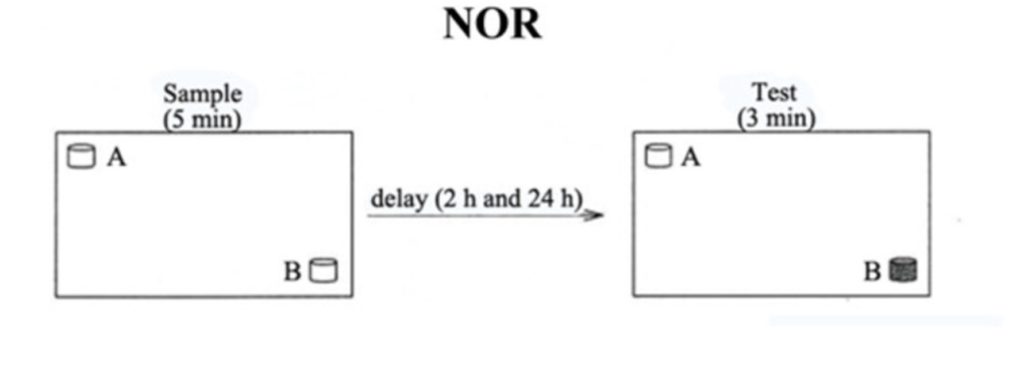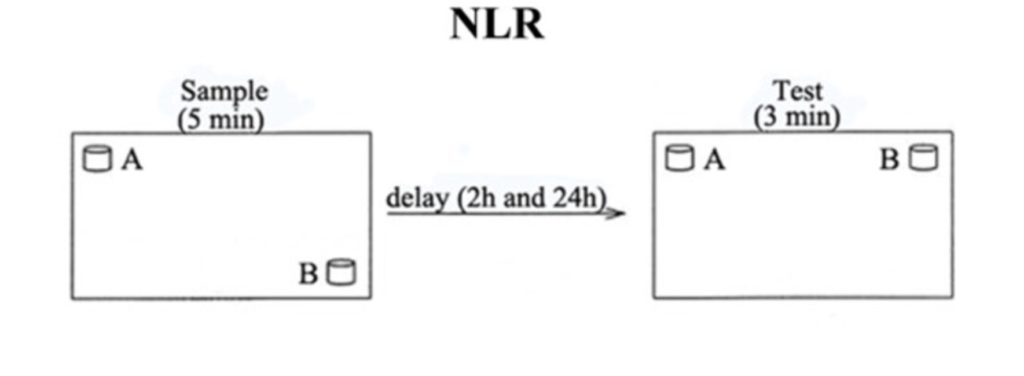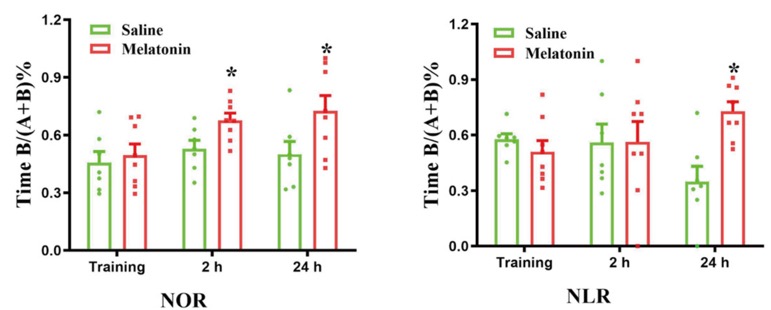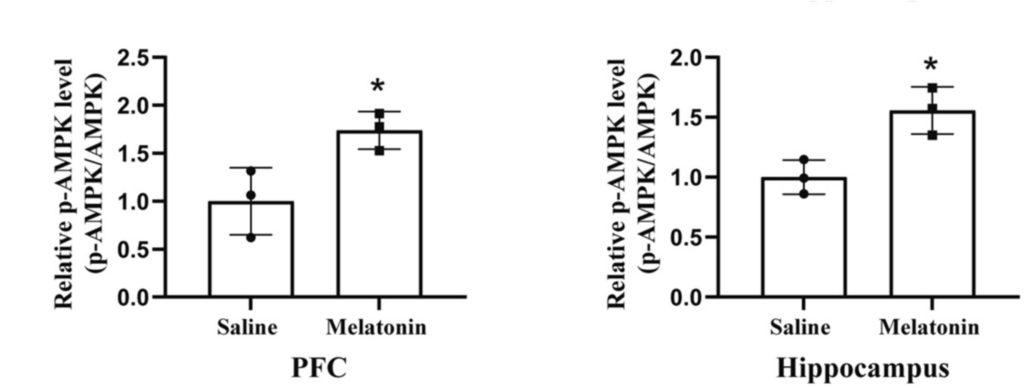One Week of Melatonin Supplementation Prevents Age-Related Memory Decline
One week of daily supplementation of melatonin — a hormone that regulates sleep — prevents memory loss in middle-aged mice.
Highlights
- One week of melatonin supplementation prevents age-related memory decline in mice.
- Melatonin reduces damage to the protective barrier that surrounds the central nervous system.
- Supplementation with melatonin elevates the longevity-associated molecule AMPK, which activates a molecule that regulates memory formation called CRTC1.
Aging impairs our ability to remember particular experiences, whether it be of objects, individuals, environments, or situations. In a new study, researchers showed that this memory decline also occurs in mice, at least to a certain degree. Moreover, the researchers showed that administering melatonin, a hormone that declines with age, to middle-aged mice prevents memory decline.
Age-Related Memory Decline in Mice
We may not be able to test whether mice remember complex experiences, but scientists have devised an eloquent method for determining if they remember objects, known as the novel object recognition (NOR) test. For the NOR test, each mouse is placed into a box containing two objects of differing size, color, or shape. After becoming familiar with the objects for five minutes, each mouse is removed from the box for either 2 or 24 hours.

How do researchers know if mice are familiar with an object? Mice have a natural tendency to sniff, touch, and explore novel objects. In contrast, mice may largely ignore familiar objects, particularly if a novel one is present. This natural tendency to explore novel objects is exploited by the NOR test. While the mouse is out of the box, researchers replace one of the familiar objects with a novel one. The mouse is then placed back into the box and tested for how long it explores the novel object over the familiar one.
The researchers ran the NOR test on both young and middle-aged mice, approximately equivalent to comparing 18-year-old humans to 45-year-old humans. They found that, in the case of the 24-hour delay, middle-aged mice explored the novel object less than young mice. These results suggest that it takes only 24 hours for middle-aged mice to, at least partially, forget a familiar object. Similar results were shown for the novel location recognition (NLR) test, whereby one of the familiar objects is moved to another location after a delay.

Together, the NOR and NLR test findings imply that, compared to young mice, middle-aged mice more readily forget brief experiences of objects and locations. This could perhaps be similar to a middle-aged individual forgetting where their car was parked, or the color of a stranger’s eyes.
Melatonin Prevents Age-Related Memory Decline in Mice
Previous studies have shown that melatonin improves the memory of mice exposed to a sugar called D-galactose, which accelerates aging. Considering these results, researchers sought to determine if melatonin improves the memory of naturally aged mice. To do so, they injected middle-aged mice with 10 mg/kg/day of melatonin for one week. For comparison, another group of middle-aged mice was injected with saline, which should not have an effect on memory.
To assess memory, the melatonin- and saline-treated middle-aged mice were subjected to the NOR and NLR tests. Remarkably, for the NOR test, the melatonin-treated mice explored the novel object more than the saline-treated mice after a 2- and 24-hour delay, suggesting that melatonin prevents losing memories of objects. The melatonin-treated mice also explored the novelly located object with a higher propensity than saline-treated mice after a 24-hour delay, suggesting that melatonin prevents the forgetting of new locations.

Melatonin Reduces Brain Leakage & Elevates Longevity Molecule
The blood-brain barrier (BBB) is a membrane surrounding the blood vessels of the brain, protecting the central nervous system from toxins and pathogens. With age, the BBB becomes damaged and leaky, contributing to age-related neurodegenerative disorders and cognitive deficits, such as memory loss. The researchers found that melatonin supplementation reduced BBB leakage in middle-aged mice, which may help explain how melatonin improves NOR and NLR test scores.
Another explanation for how melatonin may prevent age-related memory deficits is by elevating a longevity-associated molecule called AMPK. AMPK is usually activated under conditions of nutrient deprivation, such as during fasting. AMPK regulates pro-longevity processes, such as cellular homeostasis, metabolism, resistance to stress, and cell survival. Moreover, AMPK activates molecules involved in the formation of new memories, such as CRTC1.
The researchers found that, compared to saline-treated middle-aged mice, melatonin-treated middle-aged mice had higher levels of both AMPK and CRTC1 in brain regions critical for memory formation, the prefrontal cortex (PFC) and the hippocampus. These findings suggest that melatonin contributes to the prevention of memory loss by elevating AMPK and CRTC1. However, the mechanism by which melatonin interacts with AMPK remains to be elucidated, and a more complete explanation awaits.

Melatonin Improves Cognition in Alzheimer’s Patients
A meta-analysis of 22 randomized human trials showed that 12 weeks or more of melatonin supplementation improves the cognition of individuals with mild Alzheimer’s disease (AD). What’s more, a meta-analysis of 50 randomized human trials showed that a low dose of melatonin (~2 to 3 mg) was associated with the best cognitive test scores in AD patients. Thus, 12 weeks of 2 to 3 mg of melatonin could potentially improve the memory of individuals with less severe AD.
Notably, the dose of melatonin indicated on the labels of supplements can be up to 475% wrong, according to Dr. Rhonda Patrick, a biomedical scientist and anti-aging expert. Melatonin is known to degrade over time, and to compensate for this, manufacturers add extra melatonin to each pill so the dose matches the label by the time of expiration. The side effects of too much melatonin may include headaches, dizziness, nausea, and daytime drowsiness, according to the Mayo Clinic.
Considering that melatonin supplementation counteracts the symptoms of AD, it may also play a preventive role against AD and cognitive decline. However, for preventative purposes, a better alternative may be to focus on sleep hygiene, as circadian rhythm disruption is associated with AD and poor cognition. Light is the primary regulator of melatonin release, whereby light suppresses melatonin and darkness stimulates it. Getting sunlight in the mornings and reducing light exposure before bed (at the same times each day) may improve circadian rhythms and sleep, thereby reducing the risk of cognitive deficits, dementia, and neurodegeneration.
Model: 12 to14-month old male C57BL/6J mice
Dosage: Morning (9:00-10:00 am) intraperitoneal injection of melatonin (10 mg/kg/day) for one week

